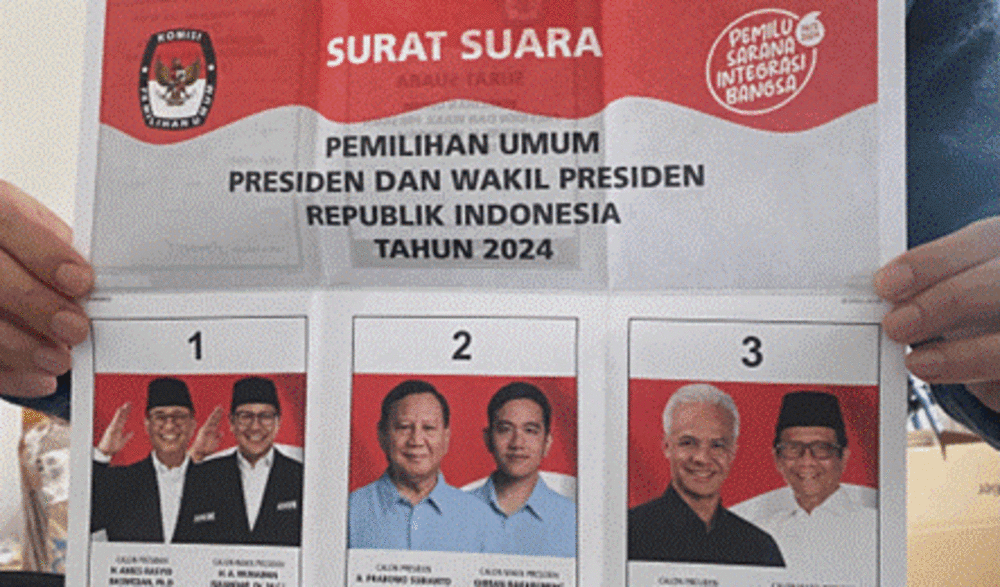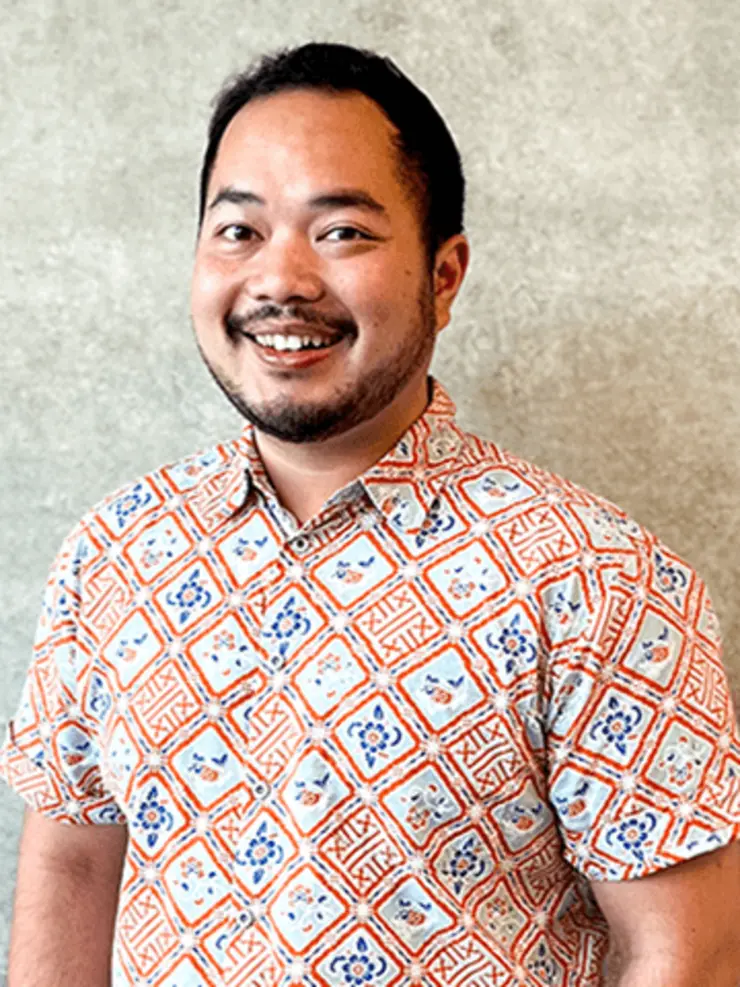Pemilu (General Election) 2024 and the Future of Indonesia’s Democracy

“A New Hope”
The phrase reverberated as a headline in the esteemed pages of America’s Time Magazine on October 15th, 2015, marking the inauguration of Joko Widodo (Jokowi), the seventh President of Indonesia—Southeast Asia’s largest economy. This declaration, adorning the magazine’s cover alongside the visage of the president, was accompanied by a telling subtitle: “Indonesian President Joko Widodo is a force for democracy” [1]. The ascension of someone who was once a political outsider to the presidency was a historic milestone for the nation, as he managed to become the head of state without familial connections to the established political and military circles.
Jokowi’s electoral victory was emblematic of a departure from the traditional elite-dominated political landscape, with his humble personality serving as an antithesis to the prevailing political ethos. According to the Indonesian independent journalism agency ‘Project Multatuli,’ Jokowi represented a paradigm shift, epitomizing the notion that individuals like him could rise to leadership positions and overcome entrenched elites [2].
However, as his second term draws to a close and the scepter of the upcoming presidential election looms, distinguishable shifts in his political posture have begun to surface. Rather than fortifying a robust meritocratic system, Jokowi appears inclined towards building a political dynasty, by the nomination of his 36-year-old firstborn, Gibran Rakabuming Raka, as a vice presidential candidate. Gibran is paired with Jokowi’s former rival and also the Defense Minister under his administration, Prabowo Subianto.
Gibran’s candidacy, though not without controversy, defied initial legal constraints, as the minimum age requirement of 40 years old for presidential & vice-presidential candidates posed a hurdle. Subsequently a legal challenge mounted by a Gibran sympathizer resulted in a constitutional court intervention. Notably, this court, presided over by Jokowi’s own in-law and Gibran’s uncle, ultimately decided Gibran’s eligibility as a vice-presidential candidate, raising questions about the intersections of familial ties and legal processes.
Deconstructing the Contenders
The Indonesian election is just a matter of days away. On the 14th of February, the world’s largest single day election is poised to engage approximately 204 million voters in determining the fate of the world’s third-largest democracy for the ensuing five years[3]. The electoral contest will be participated by three distinct presidential and vice-presidential pairings. In opposition to the Prabowo-Gibran alliance, the challengers include the former Jakarta Governor, Anies Baswedan, who is allied with Muhaimin Iskandar, the leader of the country’s largest Islam-affiliated party, National Awakening Party (PKB). Additionally, the former Central Java Governor, Ganjar Pranowo, is aligned with Mahfud MD, the former Coordinating Minister for Political Affairs, Law and Human Rights in the current administration led by President Jokowi. This article will further discuss an examination of the candidates’ policy initiatives and track records.
Whoever wins this election holds significant weight for the country’s democratic trajectory. As of now, most polls suggest the victory of Prabowo–a proxy chosen by Jokowi [4]. Prabowo is a former General with a track record stained with grave human rights violations [5]. The fact that he used to be the son-in-law of former dictator Suharto, further adds to the controversy. After two consecutive election defeats, he has reinvented his persona from a stern populist to an endearing chubby grandpa, with a fondness for cats and jovial dance moves [6]. This shift is aimed at wooing the first-time voters who may be largely unaware of his tainted past.
Despite his lack of experience, Prabowo’s choice of running mate is Jokowi’s eldest son, Gibran Rakabuming. This calculated manoeuvre aims to secure the president’s unwavering support while also leveraging his high approval ratings. Without family ties to Jokowi, Gibran would otherwise be perceived as a political novice lacking the requisite qualifications to compete on the national stage. Before venturing into politics, Gibran was mainly known as a catering and street food entrepreneur who displayed little to no inclination towards pursuing a political career [7]. However, since 2021, he has held the position of Mayor of Surakarta (known as Solo), a medium-sized city where his father began his political journey.
With the departing president’s endorsement, this tandem has established themselves as successors committed to upholding Jokowi’s agenda. One noteworthy program garnering significant attention is downstreaming (hilirisasi), which entails banning the export of strategic raw materials like nickel and bauxite. The objective is to prioritize the initial processing of these materials into finished or semi-finished goods, thereby increasing the value-added component of commodities [8]. This policy is championed by the current regime as the panacea for propelling Indonesia towards developed country status [9]. Another flagship project involves moving the capital to a planned city (known as Nusantara) being built from scratch in the forests of eastern Borneo. This ambitious construction is envisioned as a move to mitigate a sinking Jakarta while fostering a new growth center outside the already overcrowded island of Java [10]. However, these two programs draw criticism from civil society due to concerns over environmental repercussions and other negative externalities [11] [12].
While Prabowo and Gibran project the idea of continuity with the current government’s agenda, Anies Baswedan has positioned himself as the face of the opposition, championing the narrative of change. Anies’ dismissal as Jokowi’s Minister of Education during his first term marked a turning point in his political career, leading him to run for Governor of the capital. During this deeply polarized election, he began attracting substantial support from a conservative Muslim voter base. With Prabowo aligning with the government, Anies is now filling the void as the antithesis of the status quo and broadening his support base [13].
Anies has chosen Muhaimin Iskandar, a seasoned politician who has chaired his party for 18 years, as his running mate. Despite Muhaimin not being a standout in terms of popularity, his selection holds strategic significance. The party he leads, PKB, has a strong presence in East Java—a key, densely populated province where Anies lacks considerable support. PKB is known to be closely affiliated with Nahdlatul Ulama (NU), the country’s largest Islamic organization with an extensive grassroots network including influential religious scholars known as kyai [14]. The backing of NU is expected to bolster Anies' electoral support in areas that are considered strongholds of the current ruling party, Indonesian Democratic Party of Struggle (PDI-P) [15].
The Anies-Muhaimin duo (better known as AMIN) advocate for social justice and prosperity for all of Indonesia, aiming to address socio-economic disparities across the nation. Rather than investing in a costly new capital, they pledge to allocate more funds to 40 cities to foster decentralized growth beyond Java [16]. While not entirely opposed to downstreaming initiatives, the AMIN campaign has criticized the imprudent implementation of such policies, citing environmental degradation and neglect of local communities. Their proposed solution, instead, is to re-establish new industries across Indonesia, known as re-industrialization. The pair argue that this approach will incentivize labor-intensive investments, consequently not only opening up employment opportunities but also promoting more equitable economic growth [17].
The last bet is Ganjar Pranowo and Mahfud MD. The pair was nominated by Jokowi’s main supporting party during the last two elections, PDI-P. Their programmes are consolidated into 17 main points, including the creation of 17 million jobs and 1 village-1 health facility-1 health worker. With the jargon “sat set”, Indonesian slang phrase for “move fast”, the pair aims to accelerate the effort to cultivate an excellent Indonesia. [18] [19].
Ganjar was a former Central Java Governor who served from 2013 to 2023. Under his administration he succeeded in lowering down the maternal mortality rate and stunting rate among children, enforcing e-governance, and developing infrastructures [20]. However, Ganjar was not without controversy. Ganjar had a substantial role in an effort to acquire andesite mining land in Wadas Village that contributed to a prolonged agrarian conflict with the village’s residents. Ganjar pledged that the conflict had been resolved, while the people felt forced to accept compensation money from the acquisition [21].
Completing the pair, Mahfud MD was the coordinating minister for political affairs, legal, and human rights under President Jokowi’s administration. He is known for his pivotal role in resolving big corruption scandals. However, many criticized him by not doing enough to resolve the severe human rights violation in Indonesia that might have involved the national military and elites in Indonesian politics.
Towards the Crossroads
As the election draws near, preeminent Indonesian survey platforms, including Indikator Politik, have positioned the Prabowo-Gibran tandem as the frontrunners, commanding an electability rating exceeding 40%. This places significantly ahead of the remaining two pairs, who trail by a margin of 15-20%. Given the absence of any single candidate anticipated to secure a majority surpassing 50%, it is conceivable that the electoral process will progress to a second round, wherein the two leading candidates will contend in the upcoming June balloting [22].
This election holds pivotal significance, serving as a determining juncture that will influence whether Indonesia preserves the influence of elites and oligarchs or witnesses the dawn of a more illuminated era by the flourishing of the nation’s meritocratic principles. This evolving narrative provides a dynamic lens through which to discern the evolving legacy aspirations of President Jokowi. Rather than focusing on establishing a statesman-like legacy, the president has opted to cultivate a legacy for his family. As we reflect on his shifting image, one question arises: Does power change people, or does it simply unveil who they truly are?
References
[1] Time. Oct 15, 2014. The New Face of Indonesian Democracy. https://time.com/3511035/joko-widodo-indonesian-democracy/
[2] Project Multatuli. Nov 14, 2023. Langkah Politik Jokowi: Dari Populis ke Oportunis? https://projectmultatuli.org/langkah-politik-jokowi-dari-populis-ke-oportunis/
[3] Konrad Adenauer Stiftung. Jan 15, 2024. www.kas.de/en/country-reports/detail/-/content/indonesia-in-super-election-year-2024
[4] East Asia Forum. Oct 27, 2024. Can Jokowi Influence Indonesia’s Presidential Election? https://eastasiaforum.org/2023/10/27/can-jokowi-influence-indonesias-presidential-election/
[5] Inside Indonesia. Apr 27, 2014. Prabowo and human rights www.insideindonesia.org/editions/elections-2014/prabowo-and-human-rights
[6] The Guardian. Jan 9, 2024. From Military Leader to ‘Harmless Grandpa’: The Rebranding of Indonesia’s Prabowo. https://www.theguardian.com/world/2024/jan/09/indonesia-election-prabowo-subianto-rebranding-kidnapping-accusations
[7] Tempo.co. March 11, 2018. Gibran Tak Tertarik Mengikuti Jejak Jokowi Menjadi Politikus. https://nasional.tempo.co/read/1068684/gibran-tak-tertarik-mengikuti-jejak-jokowi-menjadi-politikus
[8] The Interpreter. Feb 20, 2023. Indonesia’s Uncertain Climb Up the Nickel Value Chain https://www.lowyinstitute.org/the-interpreter/indonesia-s-uncertain-climb-nickel-value-chain
[9] Fulcrum. July 28, 2023. Can Indonesia Escape the Middle Income Trap? https://fulcrum.sg/how-can-indonesia-escape-the-middle-income-trap/
[10] The New York Times. June 16, 2023. Indonesia Plans on Building Nusantara, a New Capital City. https://www.nytimes.com/interactive/2023/05/16/headway/indonesia-nusantara-jakarta.html
[11] The Washington Post. May 10, 2023. To Meet EV Demand, Industry Turns to Technology Long Deemed Hazardous. https://www.washingtonpost.com/world/interactive/2023/ev-nickel-refinery-dangers/
[12] Greenpeace. Aug 27, 2019. Greenpeace Indonesia’s Response to the Planned Move of the Indonesian Capital to East Kalimantan. https://www.greenpeace.org/southeastasia/press/2933/2933/
[13] The Economist. June 6, 2020. Indonesia’s President Has a New Rival. https://www.economist.com/asia/2020/06/06/indonesias-president-has-a-new-rival
[14] New Mandala. July 11, 2018. Nahdlatul Ulama and the Politics Trap. https://www.newmandala.org/nahdlatul-ulama-politics-trap/
[15] The Jakarta Post. Sept 18, 2023. Analysis: Will Muhaimin Reap NU Votes for Anies? https://www.thejakartapost.com/opinion/2023/09/18/analysis-will-muhaimin-reap-nu-votes-for-anies.html
[16] Kompas.com. Jan 12. Daftar 40 Kota yang Dikembangkan Anies-Muhaimin jika Menang Pilpres. https://nasional.kompas.com/read/2024/01/12/21473681/daftar-40-kota-yang-dikembangkan-anies-muhaimin-jika-menang-pilpres
[17] Kumparan. Nov 8, 2023. Anies Bicara Ekonomi Berkelanjutan: Hilirisasi Saja Tak Cukup. https://kumparan.com/kumparannews/anies-bicara-ekonomi-berkelanjutan-hilirisasi-saja-tak-cukup-21XSBvgrFhv/full
[18] Kompas.id Oct 27, 2023. Ganjar Mahfud MD Usung Program yang Fokus ke Manusia dan Inovasi. https://www.kompas.id/baca/ekonomi/2023/10/27/capres-ganjar-pranowo-cawapres-mahfud-md-usung-program-yang-fokus-ke-manusia-dan-inovasi
[19] Katadata.co.id. Dec 23, 2023 Ganjar-Mahfud Gagas 21 Program Unggulan, Butuh Rp 2.500 Triliun. https://katadata.co.id/agustiyanti/finansial/6586a535343a2/ganjar-mahfud-gagas-21-program-unggulan-butuh-rp-2500-triliun
[20] Narasi. Nov 1, 2023. Rekam Jejak Ganjar Pranowo Selama Menjadi Gubernur Jawa Tengah. https://narasi.tv/read/narasi-daily/daftar-prestasi-ganjar-selama-menjadi-gubernur
[21] Kompas.com. Sept 1, 2023. Konflik Wadas Belum Selesai, Warga “Dipaksa” Terima Ganti Rugi Juga Alami Banjir Lumpur. https://regional.kompas.com/read/2023/09/01/113455678/konflik-wadas-belum-selesai-warga-dipaksa-terima-ganti-rugi-juga-alami?page=all
[22] CNN Indonesia. Jan 29, 2024. Elektabilitas Terbaru Anies, Prabowo, Ganjar dari 7 Lembaga Survei. https://www.cnnindonesia.com/nasional/20240126120358-617-1054680/elektabilitas-terbaru-anies-prabowo-ganjar-dari-7-lembaga-survei
About the Author

Teuku Harza Mauludi is a candidate for a Master's degree in Public Policy at the Willy Brandt School. Currently, he is working as a research intern at the German Institute for Global and Area Studies (GIGA). He has a keen interest in the digital sphere and digital inequality.

Viddy Ranawijaya is a Doctoral Student at the Willy Brandt School of Public Policy and a member of the PolDigWork project team.